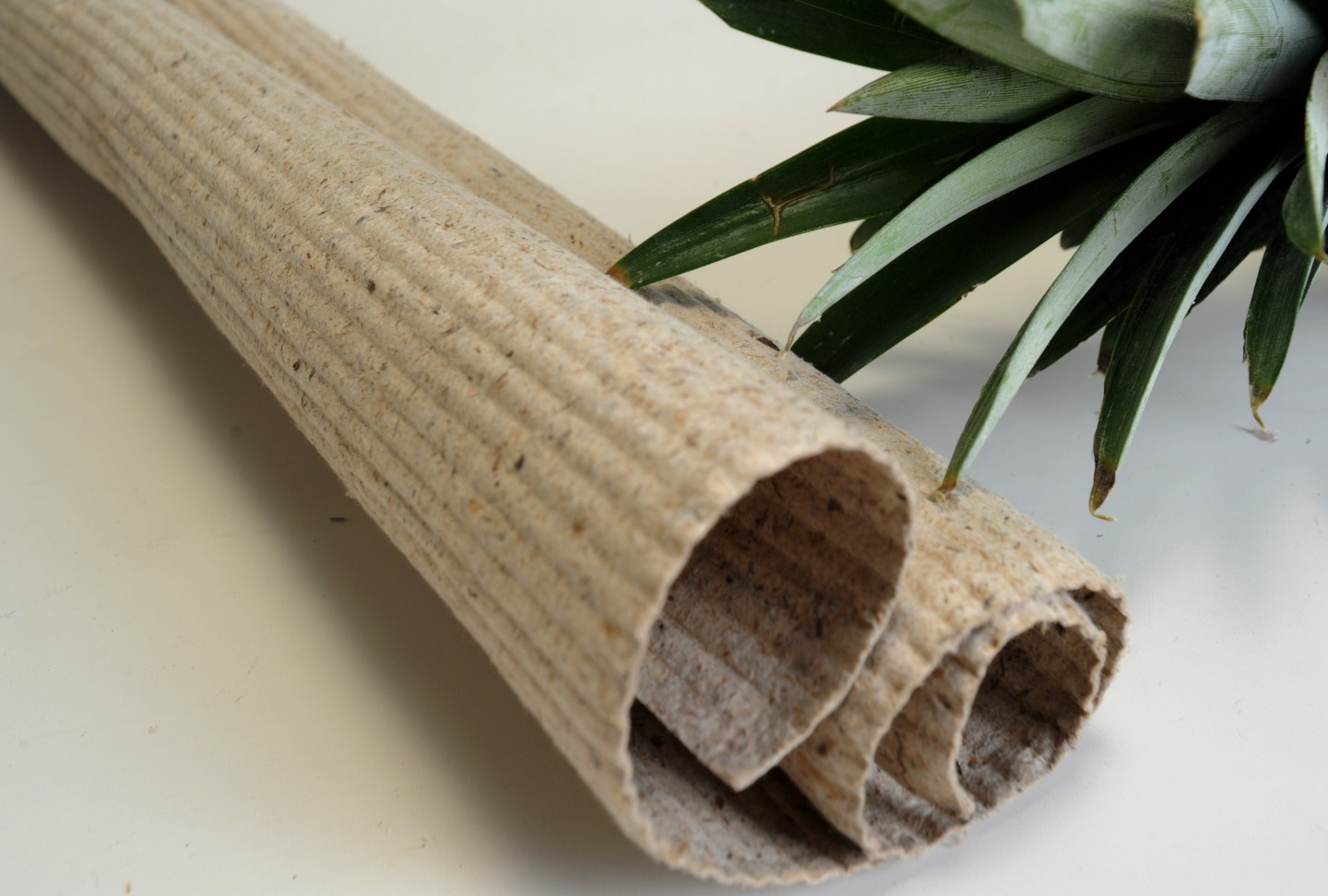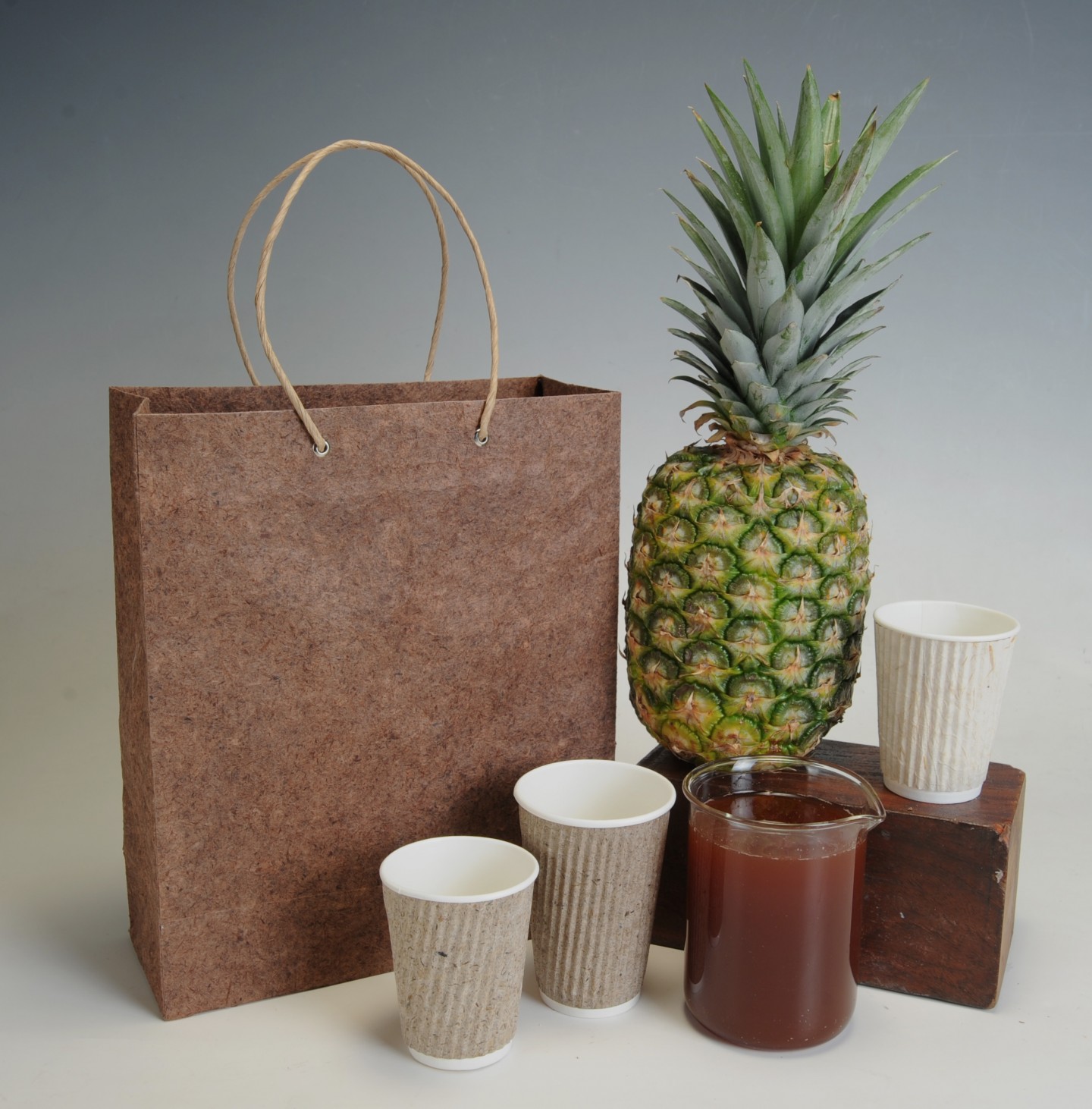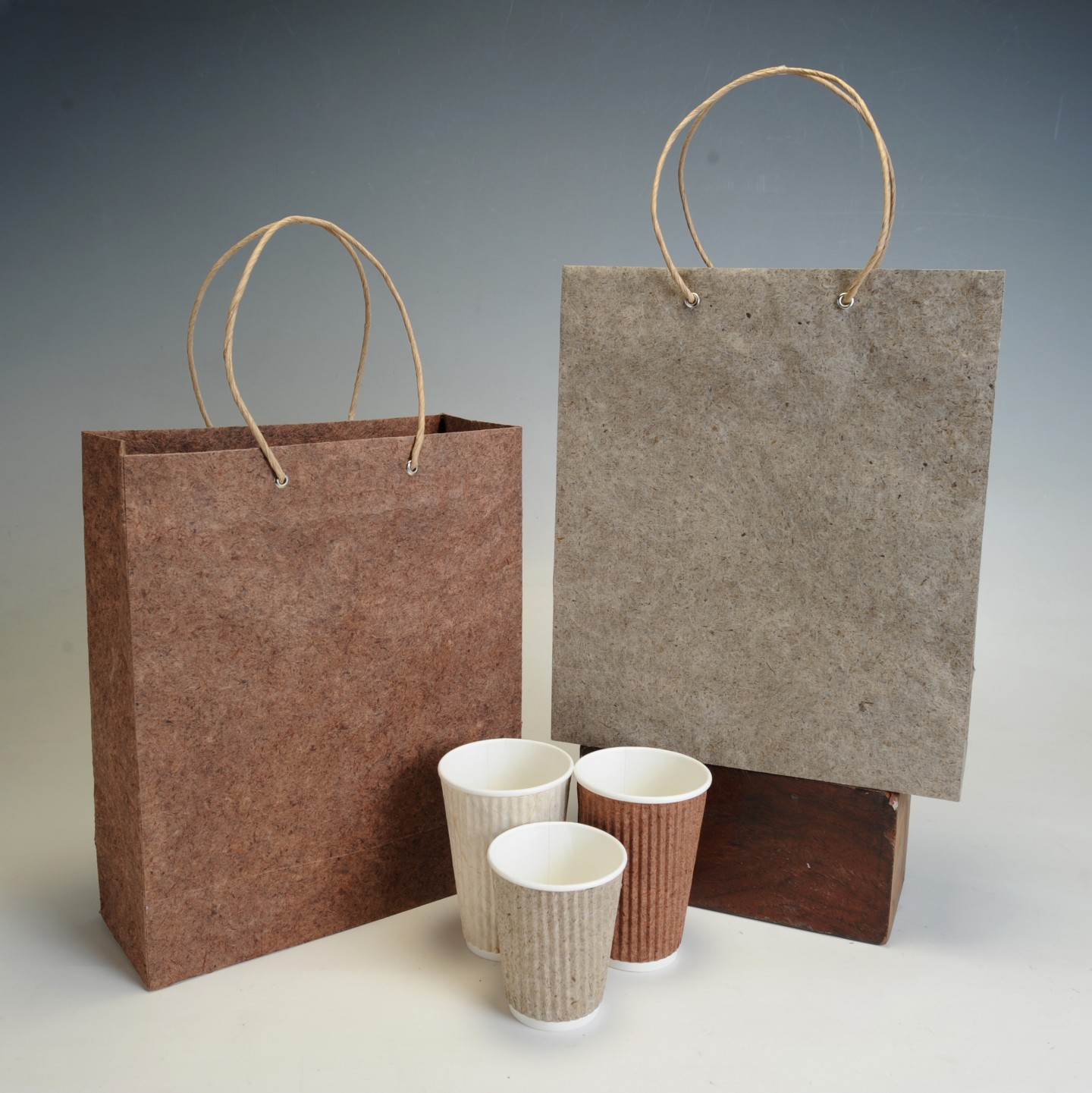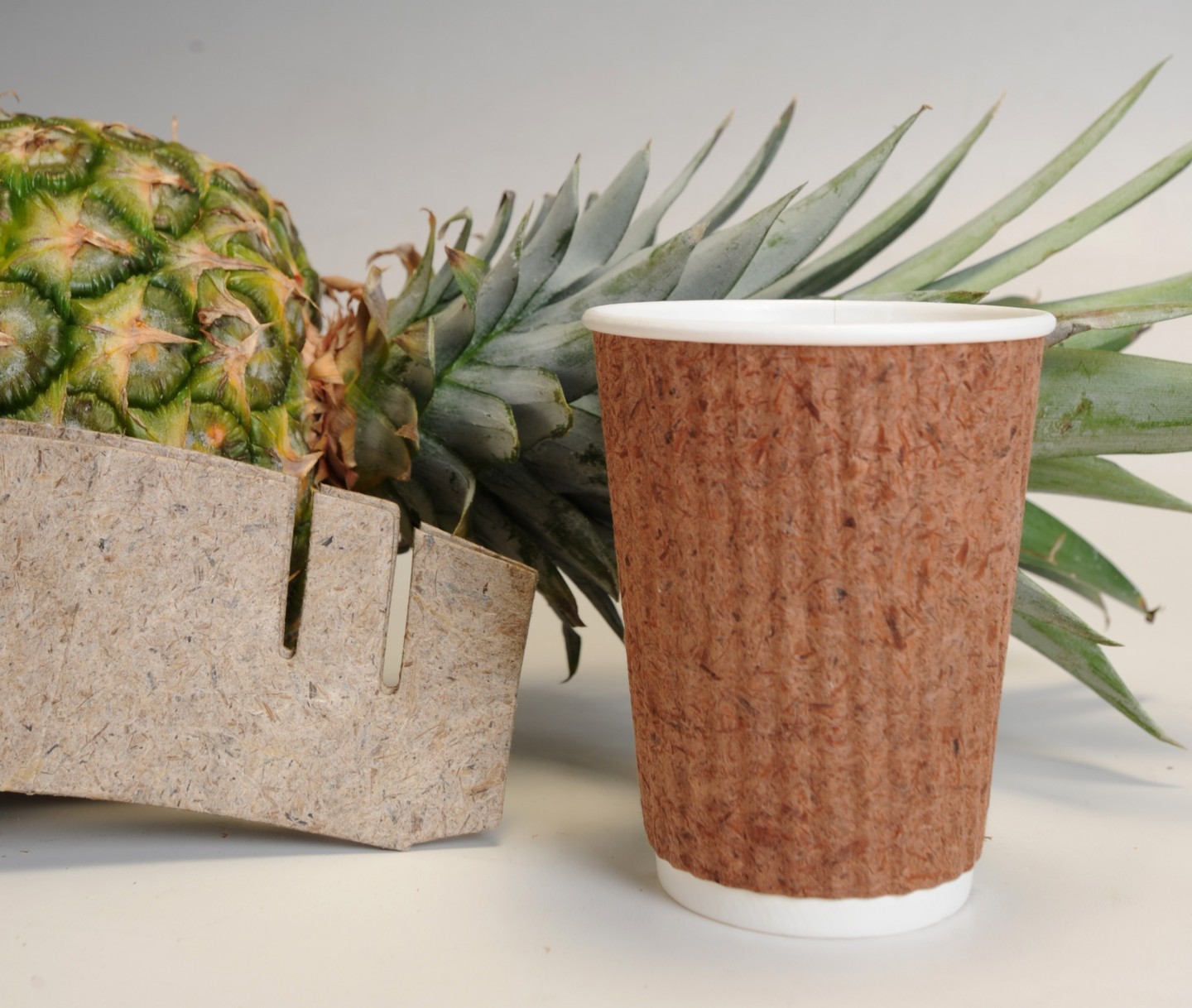
While the Philippines prides itself as the second largest producer of pineapples globally, the question now arises: where do agricultural wastes from its production go? Similarly, as the quest and demand for sustainability continue to grow all around the world, the more that individuals want transparency regarding the production and supply chain process. Questions such as how a certain product is sourced and what happens to the aggregate wastes once done are beginning to take the forefront. Luckily, the Design Center of the Philippines sparked the answer. That answer is pinyapel.
Pinyapel is a locally-processed and locally-manufactured specialty paper made from discarded pineapple leaves. Aside from using indigenous raw materials, the Design Center of the Philippines now expanded to turning agricultural wastes into high-value materials such as print paper and secondary packaging applications.
Additionally, pinyapel offers a solution for agricultural wastes by giving them new purpose and value. It serves as a means for our country’s agricultural industries to align with the UN Sustainable Development Goal of responsible production and consumption. With the launch of pinyapel, the Design Center of the Philippines hopes to spark more ideas in transforming local raw materials, agricultural, and industrial wastes into materials that can be used for product development and innovative designs.
But beyond decreasing harmful environmental impact, the production of pinyapel is also a tool to increase the livelihood of farmers. “For every one cycle of drying, collecting, and bagging of five tons of pineapple leaves, it adds an approximately PHP 1,753 to the weekly income of every seven pineapple laborers,” Alei Mae Uy, CCO of Nature’s Fresh Pineapples stated.
And this is just the beginning, companies such as Ideatechs Packaging are looking into turning pinyapel to gift bags and paper cup sleeves. It is with opportunities like this that the Design Center of the Philippines strives to push pinyapel into further commercialization—helping the environment and local farmers and bolstering the local industry.







